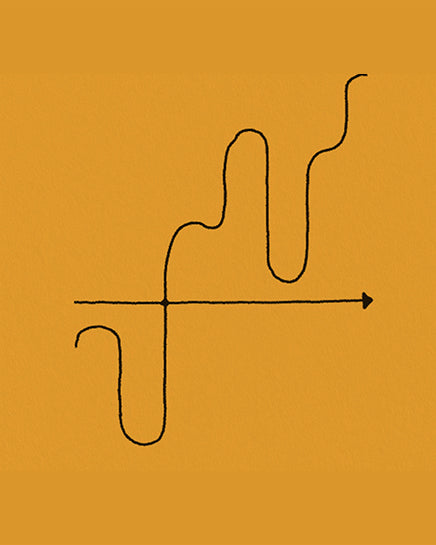
April 11, 2022
On Late ADHD Diagnosis: What does it mean for you?
By Gloria Joy Sherrod, LCPC
FROM GLORIA JOY SHERROD
Attention Deficit Hyperactivity Disorder (ADHD) has traditionally been discussed as a childhood disorder with many of the resources available aimed at parents managing their child’s diagnosis. If you searched for ADHD online years ago, most articles might say something like, “How you can help your child manage classroom distractions when they have ADHD” or “What to do when your child with ADHD struggles to complete homework.” As an adult who never “grew out of it,” the help I needed was scarce. Some of the disparities in help for adults might be driven by older research indicating that many children outgrow ADHD by adulthood.
Now we have a much better understanding of ADHD. Recent research done by the American Journal of Psychiatry indicates that 90% of children with ADHD grow up to be adults with ADHD. Alternatively, many adults living with ADHD were not tested and diagnosed as children, given no answers when seeking help, and had no explanation for the challenges they faced growing up. ADHD is often misdiagnosed as anxiety, depression, or even oppositional defiant disorder. This April 2022 study spotlights a whopping 75% of adults with ADHD received an inaccurate diagnosis before their ADHD was identified. What are the implications of a late diagnosis on our sense of self?
Adults with ADHD may have difficulties with things like meeting deadlines, managing overpowering emotions, attending to anything that doesn’t capture their attention, or keeping their spaces organized and functional. Many adults with ADHD prior to diagnosis might often describe themselves as “lazy,” “stupid,” “uncaring,” “flakey,” “failures” “disruptive,” or “spacey.” Many might have been described this way by teachers, parents, friends, or managers. These adults try to make improvements in areas of weakness only to come up short with no explanation for why their effort isn’t yielding results. This perpetuates the negative labels they have placed upon themselves. The pressure of attempting to hide weaknesses from others can lead to depression and/or anxiety. Some turn to substances or other addictions to cope with the pressure.
When people have a proper diagnosis as early as possible, they get a chance to know what to expect from themselves and their abilities. In turn, they no longer label themselves as “lazy” or “failures” but as people who function differently due to their neurobiology. There are many effective ways to manage this condition, including mental health education, therapy, medication, and behavioral interventions. The hope is that in this era of increased education and support about ADHD—and similar neurodevelopmental conditions—people will have the freedom to better connect with who they really are in a healthy way, and receive the resources that work best for them.
ASK A THERAPIST
What do you do if you’ve recently been diagnosed with ADHD as an adult?
Due to the increased awareness of ADHD, there is a wealth of great resources available for you. Though you cannot “cure” ADHD, there are adjustments you can make in your everyday life to help lighten the load.
I often get asked if one should go to therapy or use a coach. An ADHD Coach (like myself) or Executive Functioning Coach is a great place to start to gain practical strategies to make life easier. We can help with things like planning, organizing, time-management skills, working around memory deficits, and providing much needed education and accountability along the way.
As someone who is also a trained therapist, in my coaching role I like to make sure that all of my clients are in therapy or have been to therapy to address any co-occurring concerns like depression and anxiety. It can be difficult to follow through with the coaching process if you have additional difficulty with motivation and/or dysregulation due to depression or anxiety. Therapy also addresses some of the trauma that might come with a late diagnosis, such as low self-esteem, lack of self-confidence, perfectionism, and deep feelings of rejection.
In addition to therapy and coaching, it’s also equally important to have an understanding community. This can be an online or in-person ADHD group. Being surrounded by others who experience the same struggles can work wonders for your self-concept and journey toward self-acceptance. I regularly receive messages from people on Instagram telling me how important and impactful the validation of our ADHD community has been for them, and I can say the same for my own personal ADHD journey, too.
TIP OF THE WEEK
How to Get Started When Task Initiation Gets in the Way
Difficulty with task initiation is one of the most common issues I see in coaching. This might present itself like knowing what you need to do but struggling to get yourself started on it. In ADHD, this happens often due to a dysregulation in dopamine levels in the brain. Dopamine is a neurotransmitter that creates feelings of reward, pleasure, and motivation. For most people, dopamine is released in the brain once we’ve completed a task, leading to feelings of reward or accomplishment. In the ADHD brain, dopamine is often not properly absorbed effectively which leads to difficulty getting started.
A helpful trick I recommend: set the intention to do one tiny first step of a bigger task. For example, if you have some work to complete at the computer, you can say “I’m only going to sit down at the desk and open up the computer, that’s it.” Oftentimes once you’ve taken that first step, the ball is rolling and you have enough momentum to keep going. Task initiation is all about simply getting started, so once you’ve successfully made that first step, it’s easier to continue. If you don’t keep going, it indicates that perhaps you need to move around, or fulfill some need before getting started.
Gloria Joy Sherrod is a Licensed Clinical Professional Counselor, ADHD Expert, Author, Mental Health Educator, and Content Creator. Gloria’s mission is to step outside of the box to create mental health education that is applicable and accessible to anyone.
Sign up for our clinician-led newsletter, Waiting Room. Contribute here.
This article is not therapy or a replacement for therapy with a licensed professional. It is designed to provide information in regard to the subject matter covered. It is not engaged in rendering psychological, financial, legal, or other professional services. If expert assistance or counseling is needed, seek the services of a competent professional.



